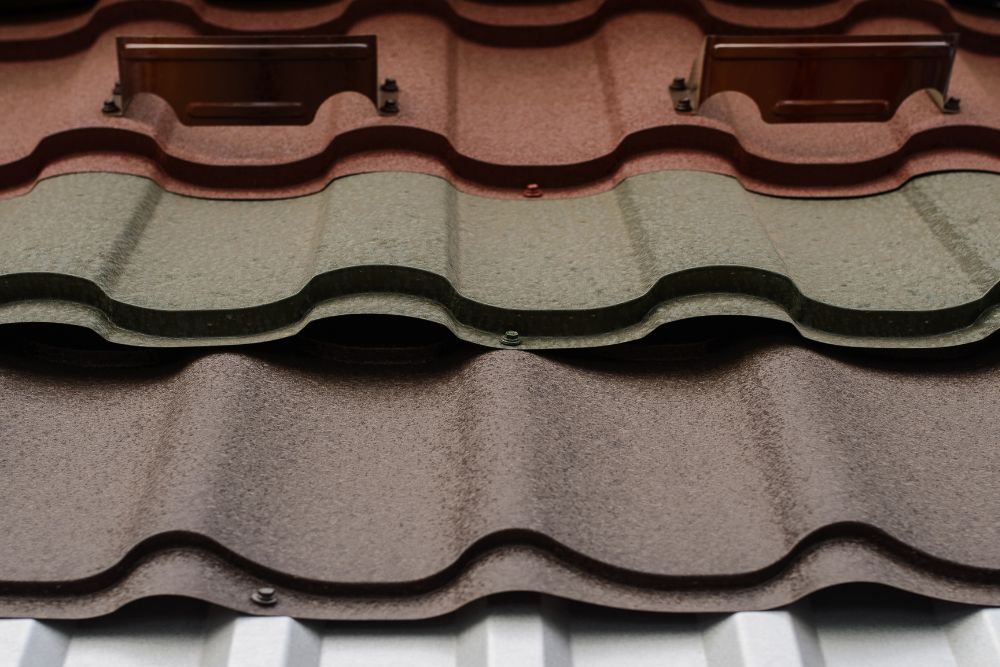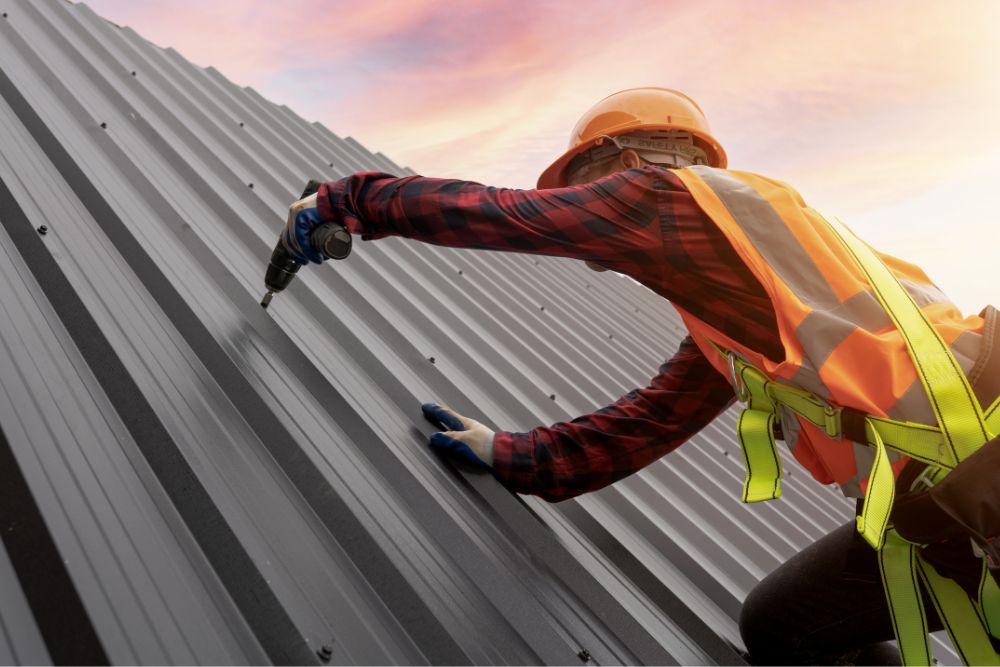Are you concerned about roofing scams in Florida and how they could impact you?
Knowing about common fraudulent practices in the roofing industry can help you protect your home and finances.
From unnecessary repairs to fake licenses, it’s important for Florida residents to be aware of the potential risks so that they can be sure they are working with a trustworthy roofing company.
Stay informed about deceitful schemes and learn how to defend yourself from dishonest individuals looking to exploit unsuspecting homeowners.
Unnecessary Repairs Pressure Tactics
Watch out for roofers who try to pressure you into unnecessary repairs by making up damage claims. Some contractors use strong-arm tactics, exaggerating issues with your roof to push for repairs that aren’t really required. Be wary of scammers who might fabricate proof of damage to convince you that repairs are urgent. These scammers could even threaten you with higher insurance premiums if you don’t agree to their demands.
When you’re dealing with roofing problems, it’s important to confirm the actual extent of any damage independently. Don’t let yourself be influenced by forceful tactics or exaggerated statements. Take the time to seek a second opinion from a trustworthy roofing professional before committing to any repairs. Remember, it’s your home and your insurance at stake, so don’t let scammers exploit you with unnecessary repairs. Stay alert and don’t become a victim of pressure tactics designed to make you pay for repairs that you truly don’t need.
Deposit Disappearance Scheme
If you’ve managed to avoid pushy repair tactics, be on the lookout for a Deposit Disappearance Scheme that could leave you high and dry without a roof over your head. Scammers behind this roofing scam target trusting homeowners who are in need of roof repairs. Here are some important points to keep in mind:
- Scammers might ask for a deposit for materials but never follow through, leaving homeowners in a tough spot.
- Homeowners end up losing their deposit without any work being done on their roof, leading to financial loss.
- Contractors disappear after pocketing the deposit, leaving homeowners with no roof repairs and limited legal options against these vanishing scammers.
It’s crucial to be cautious when dealing with contractors who demand upfront deposits. Make sure to thoroughly check and verify any roofing company before making any financial commitments. Stay alert to avoid falling prey to this deposit disappearance scheme and safeguard yourself from unnecessary financial damage and the disappointment of unfinished roofing work.
Cash Payment Tax Evasion
Some contractors in Florida use cash payments to avoid paying taxes, which can put homeowners at risk of getting involved in illegal activities. When you pay with cash, there’s no record of the transaction, making it hard to trace the money. Contractors might offer discounts to convince homeowners to pay in cash, making tax evasion easier. These unreported cash deals don’t just cheat the government out of money but also help the underground economy grow.
If you pay for roofing services with cash, you might be supporting tax evasion without realizing it. Watch out for contractors who push you to use cash and resist the temptation of discounts. By taking or making unreported cash payments for roofing work, you could unintentionally get mixed up in illegal money practices.
Fake Licensing and Insurance
Before hiring a roofing contractor in Florida, ensure they have a valid license. Request proof of insurance to protect yourself from potential costs in case of accidents.
Watch out for suspicious signs of fake licensing or insurance to safeguard your roofing project.
License Verification Tips
Make sure you check a contractor’s license and insurance carefully to protect yourself from potential scams in the roofing industry. Unlicensed individuals can target homeowners, leading to financial losses and inadequate insurance coverage. To avoid scams, follow these tips:
- Verify the contractor’s license number with the relevant licensing board.
- Ask for a copy of the contractor’s insurance certificate and check its validity.
- Read online reviews and testimonials to assess the contractor’s reputation and trustworthiness.
Insurance Coverage Proof
Verifying a roofer’s license and insurance is crucial to protect yourself from potential scams in the roofing industry. In Florida, it’s important to make sure the roofing contractor has valid insurance coverage proof. Some scammers may try to trick homeowners with fake licenses and insurance papers, putting you at risk of financial harm and poor quality work.
Confirming the legitimacy of their credentials is key to safeguarding yourself from fraud. Genuine insurance coverage proof not only ensures good work but also shields you from liabilities in case of accidents or damages during the roofing job.
Checking a contractor’s license and insurance is essential for your protection and peace of mind.
Red Flags to Detect
To identify possible roofing scams in Florida involving fake licensing and insurance, look for warning signs that suggest deceit and unreliability in contractors. Here are some signs to watch out for:
- Contractors Without a License: Be cautious of contractors who don’t have the proper licensing.
- Absence of Insurance: Confirm that contractors have the required insurance to handle any accidents.
- Targeting Vulnerable Homeowners: Contractors who focus on vulnerable homeowners may present a greater risk of financial harm.
Storm Chaser Deception
Beware of storm chasers! These contractors often come from out of state to take advantage of roofing needs after a disaster. They may pressure you into unnecessary repairs or try to sell you services you don’t actually need.
Be careful of overpriced quick fixes, as these dishonest roofers care more about making money than doing quality work.
Out-Of-State Contractors
Watch out for out-of-state contractors who may try to take advantage of Florida residents after severe weather events. These contractors, also known as storm chasers, mightn’t have the proper licenses, insurance, or registration to work in Florida. This could put you at risk of being scammed. Here are some important things to keep in mind:
- Be cautious of quick roof repairs using low-quality materials that could cause problems later on.
- There’s a risk of incomplete or shoddy work, as these contractors may leave town once they’re paid.
- To avoid falling for storm chaser schemes and ensure good work, it’s best to hire reputable local roofers.
Make sure to carefully check out any contractors before agreeing to any repairs.
High-Pressure Sales Tactics
Beware of pushy sales tactics used by contractors who pressure you into making quick decisions about roof repairs or replacements. These aggressive tactics aim to rush you into signing contracts without proper consideration. They often exploit the urgency of storm damage, claiming limited availability and exclusive deals. If you give in to these tactics without careful assessment, you could become a victim of scams and receive low-quality work.
Rushed projects, shoddy workmanship, and ineffective roofing solutions are common results of these high-pressure strategies. Before committing to any roofing agreements, take the time to research and verify to protect yourself from these unethical practices. Stay vigilant and don’t let urgency influence your decisions when dealing with contractors who use these tactics.
Unnecessary Repairs Upselling
Exaggerating or inventing damage to convince homeowners to pay for unnecessary repairs is a common tactic used by storm chasers who want to sell more services. When dealing with storm chasers, be on the lookout for these signs of dishonest practices:
- Urging Immediate Repairs: Storm chasers often rush homeowners into making quick decisions on repairs that may not be needed.
- Quoting Unrealistically Low Prices: Be cautious of contractors who give surprisingly low estimates for major repairs.
- Falsely Claiming Insurance Assistance: Some storm chasers falsely say they can work with your insurance to cover unnecessary repairs.
To avoid being tricked into unnecessary repairs and spending extra money, always confirm the legitimacy of damage claims before agreeing to any work. Remember, being careful can help you avoid higher costs and unnecessary expenses.
Shoddy Workmanship Rip-Off
Beware of poor craftsmanship signals during your Florida roofing project. Dishonest contractors may cut corners, risking the project’s quality. This inferior work can result in leaks, structural problems, and safety hazards, exposing homeowners to damage and extra costs.
In Florida’s volatile weather, a sturdy roof is essential. Subpar work not only weakens the roof but also shortens its lifespan, possibly leading to expensive repairs or replacements later on.
Conclusion
Protect yourself from common roofing scams in Florida by staying informed and alert. Avoid signing contracts before insurance inspections and verify the legitimacy of contractors. Choose reputable, local companies and be wary of high-pressure tactics. Watch out for schemes where deposits disappear and fake licensing and insurance.
By being cautious and informed, you can steer clear of deceptive practices and ensure a reliable roofing experience. Stay vigilant and protect yourself from potential scams.



